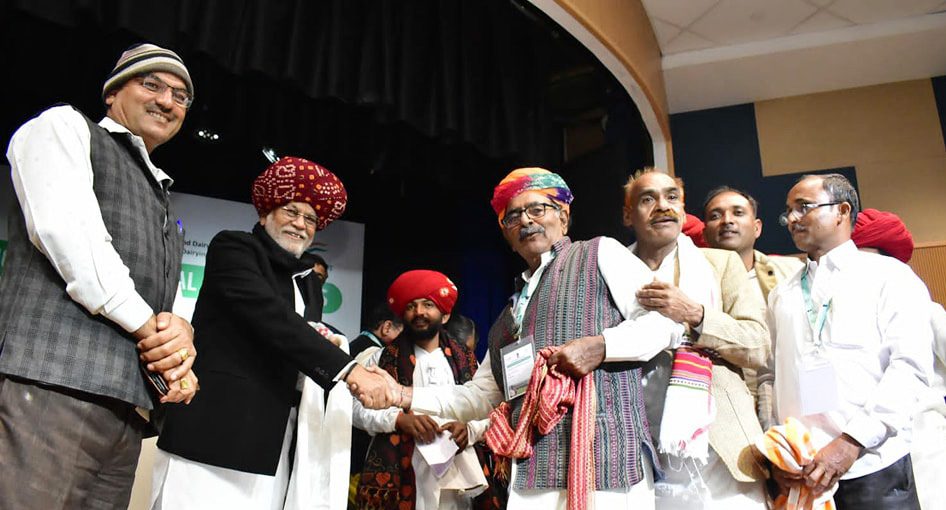In a bid to boost the economic status of pastoral communities, Parshottam Rupala, Union Minister, Fisheries Animal Husbandry and Dairying along with officials from the Ministry interacted with them from across the country last week at Dr Ambedkar International Centre (DAIC), New Delhi.
Formation of cooperatives to facilitate marketing of Pastoral products is also under consideration. Being organic in nature, most of their products sell at a much lower rates due to lack of proper marketing network.
The main concerns expressed by pastoral communities during the interaction ranged from gradual loss of pasture lands, official recognition of pastoralists to documentation of traditional knowledge and practices being followed by the community.
In his interaction, the Minister highlighted that the department has recently formed a ‘Pastoral cell’ to prioritize the enabling policies for the community, encouraged women participation in future interactions, and focused on how youth can be motivated. He applauded the pastoral communities for conserving their traditions and cultural practices as of date.
A note on the different schemes of the Department of Animal Husbandry and Dairying, Govt. of India under which assistance can be provided to pastoralists has been circulated to all State Animal Husbandry Departments, he said.
The Ministry of Fisheries, Animal Husbandry & Dairying has extended the facilities of ‘Kisan Credit Cards’ to pastoral communities, said Rupala. The Ministry has also decided to include details of pastoral communities in the upcoming 21st Livestock Census, scheduled in 2024.
Earlier, the Union Minister along with officials from the Ministry attended a ‘Pastoral Convention’ in Bhuj, Gujarat in January, 2023, where concerns like regeneration of degrading pasture lands, pasture development and increasing availability of water in pastures were discussed.
Establishing structured marketing facilities for produce (milk, meat and wool) ensuring proper value of the produce reaches the actual pastoral communities. Facilitation of transport of perishable products (milk) to market on a timely basis. Formation of cooperatives to facilitate marketing were other topics in discussion.
Establishing mobile schools for pastoralists and ensuring last mile service delivery at highland and lowland pastures along the migratory route were also debated.
It needs to be known that pastoralism is a form of animal husbandry where livestock are reared by grazing in pastures, historically by nomadic people who moved around with their herds. The species involved include sheep, goat, camels, cattle, buffalo, yaks and donkey.
